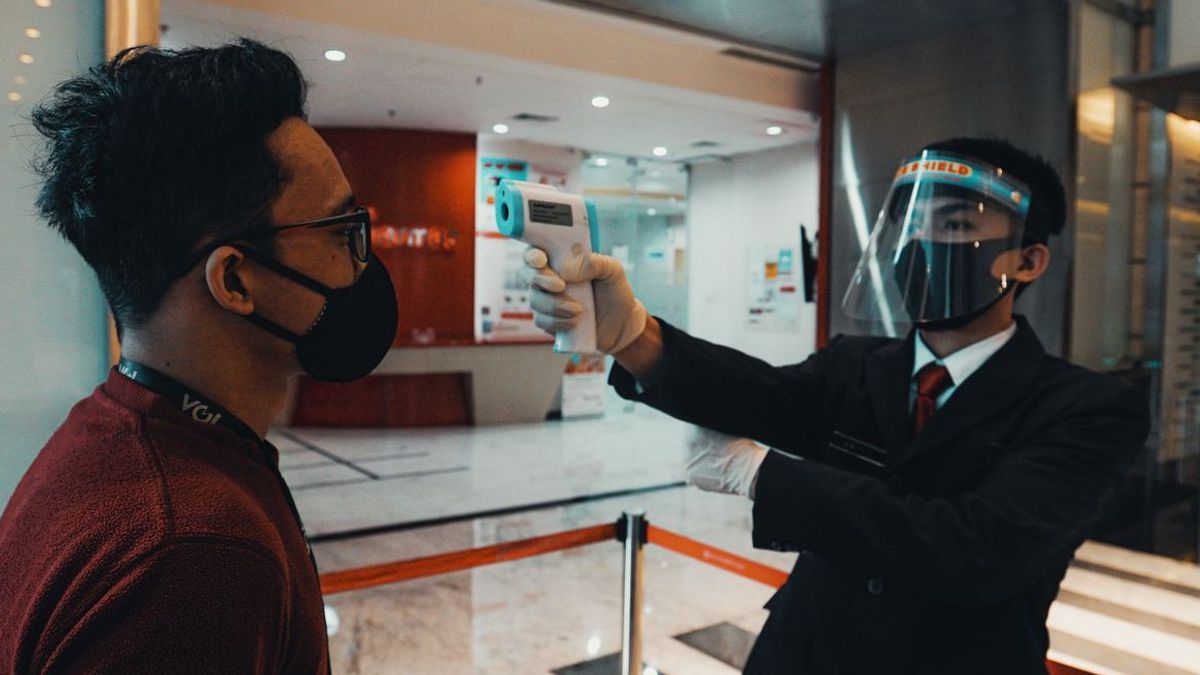JAKARTA - The Central Statistics Agency (BPS) has released the results of a survey on community behavior in the midst of the COVID-19 pandemic. The result is that 45 percent of the public have only tightened their health protocols after someone is positive for COVID-19 in their environment.
The survey was conducted by BPS on September 7-14 and followed by 90,967 respondents consisting of 55 percent female respondents and 45 percent male respondents.
"The public response when someone is infected with COVID-19 in the surrounding area, 45 percent of people who find infected people will tighten health protocols in their respective neighborhoods," said Head of BPS Suhariyanto when presenting the survey results broadcast on the YouTube account of BNPB Indonesia, Monday, 28 September.
Kecuk, Suhariyanto's nickname, said that besides that there were also other responses. Namely 22 percent of respondents will provide support. Meanwhile, seven percent of them will isolate or give a negative stigma to sufferers.
Regarding the last reaction, Suhariyanto said that giving a negative stigma against people who have contracted COVID-19 cannot be tolerated. Moreover, cases like this have occurred in many communities.
For example, he alluded to a BPS employee who tested positive for COVID-19 and had to enter the Kemayoran Jakarta Athlete House. "It was negative and then he came out and was rejected at his boarding house. So we had to find another place," he said.
So that going forward, the government feels the need to carry out strict socialization regarding COVID-19. The goal is that people who have been declared negative can return to society without any negative stigma.
Furthermore, this survey also noted that as many as 25 percent of respondents had already engaged in activities outside the home after adapting to new habits. They, said Suhariyanto, left the house to do work.
"With many people who are more active during the adaptation of new habits, which need to be monitored, how do they go to the office whether using public or private vehicles," he said.
Finally, Suhariyanto also said that almost all offices, malls and public services have implemented health protocols. However, the implementation of this protocol is still not happening in traditional markets and places of worship.
"So in workplaces, malls and public services, almost all of them apply health protocols. A special note is for traditional markets and street vendors, 17.3 percent of respondents stated that there is absolutely no health protocol," he said.
"The next thing that must be guarded is a place of worship because 5.78 percent of respondents admitted that health protocols were not applied in their places of worship. So, these two places seem to need more attention when disseminating health protocols," he added.
So that in the future, the government is asked to consistently pay attention to the implementation of health protocols in traditional markets and places of worship. "Apart from socialization, there needs to be support from the government so that the protocol is more orderly," he concluded.
The English, Chinese, Japanese, Arabic, and French versions are automatically generated by the AI. So there may still be inaccuracies in translating, please always see Indonesian as our main language. (system supported by DigitalSiber.id)










